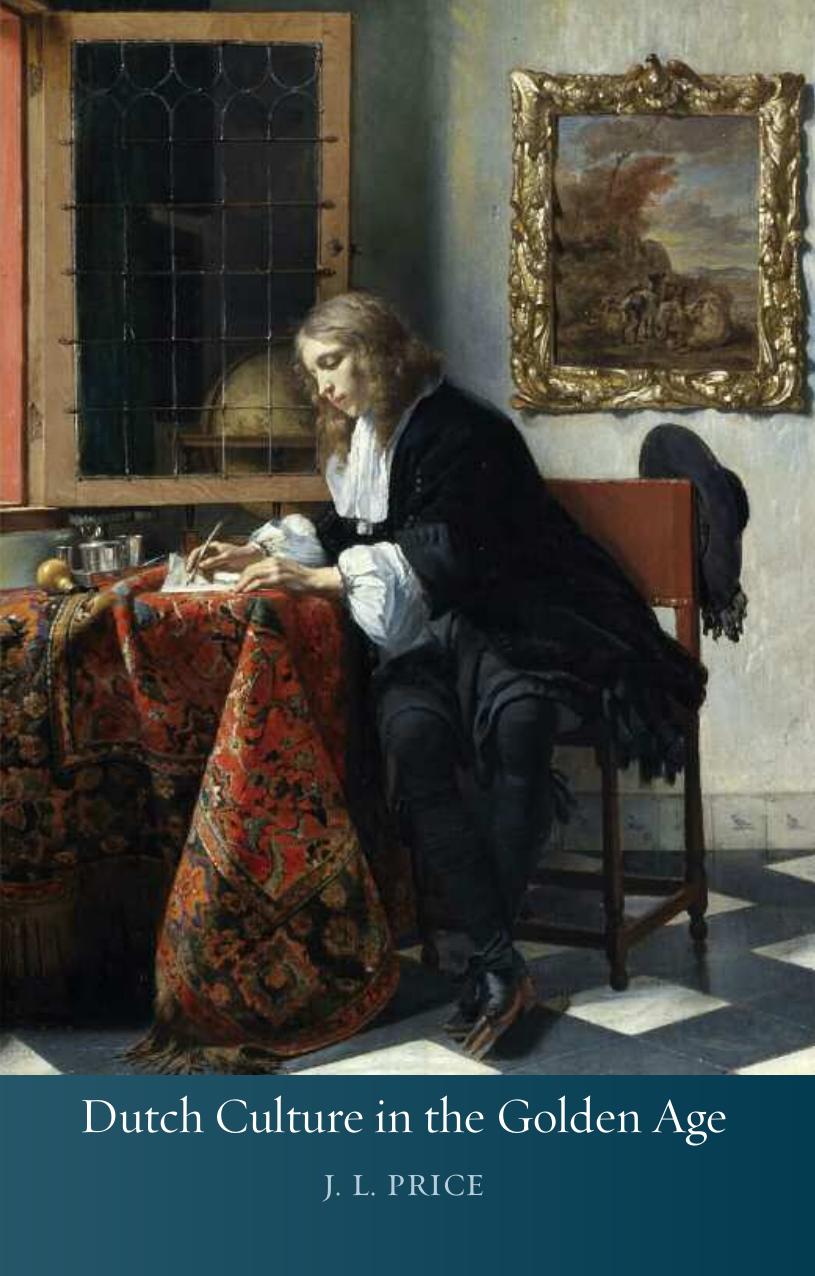Dutch Culture in the Golden Age by J. L. Price

Author:J. L. Price [Price, J. L.]
Language: eng
Format: epub, pdf
Tags: Europe, History, Western, General
ISBN: 9781861899910
Google: -wgfipvScEIC
Publisher: Reaktion Books
Published: 2011-01-02T00:00:00+00:00
6
Humanism and the Republic of Letters
In the sixteenth century the Low Countries were a major centre of humanist learning, and produced two of its most important figures – Erasmus at the beginning of the century and Lipsius at its end. It formed the main link between southern and northern Europe for the transmission of the Renaissance, and had already begun to rival Italy and France as the foremost intellectual centre in Europe by the beginning of the Golden Age. Subsequently, the foundation of new universities in the Republic and the increasing strength of publishing in the country helped to ensure that this position as the intellectual leader of northern Europe would be consolidated and, indeed, extended to the whole continent, though by the last decades of the seventeenth century this leadership had taken a very different form. By this time learned periodicals had replaced the published correspondence of humanists, and the universities were being increasingly sidelined as far as intellectual leadership and innovation was concerned.
Erasmus had been the most renowned humanist in early sixteenth-century Europe. He was born in Rotterdam and can probably be regarded as a Netherlander in spirit as well as by birth despite his international fame and the fact that he spent most of his adult life outside the Low Countries. Among those who could read Latin his writings became enormously popular, particularly the satirical classic In Praise of Folly. His mordant criticism of corruption within the Catholic Church helped to prepare the ground for the Reformation, but his non-dogmatic form of Christianity became swamped by the religious conflicts of his time. Lipsius was born in Brabant and lived through the period of the Revolt and the beginning of the subsequent war between the Republic and Spain. He accepted a chair at the new university of Leiden, but then switched sides again and returned to the Catholic university of Louvain in the Spanish Netherlands. He spent much of his adult life oscillating between sides in the conflict in the Netherlands, and it is perhaps ironic that his major work – an exposition of neo-Stoic thought – was entitled Of Constancy. However, just as Erasmus tried to make fence-sitting a viable theological position, so there is a certain consistency in Lipsius’ search for firm moral and philosophical ground in a situation where it seemed only the least bad alternative was available.
Humanism in the Low Countries was already developing a distinctive character before the Revolt, and Erasmus came to stand for an aversion to religious coercion which was not only to become a particularly powerful component of Dutch thought but also had a notable effect on the rest of Europe, though the impact outside the Republic was more diffuse and had rather less influential. This leaning towards a degree of toleration was strengthened by revulsion against the severe persecution inflicted on Protestants in the Low Countries by the Spanish regime, and by the repressive measures taken by Alva’s Council of Blood in particular. This was not just a scholarly squeamishness but had an unmistakeable effect on the political decisions of the regents as well.
Download
Dutch Culture in the Golden Age by J. L. Price.pdf
This site does not store any files on its server. We only index and link to content provided by other sites. Please contact the content providers to delete copyright contents if any and email us, we'll remove relevant links or contents immediately.
The Vikings: Conquering England, France, and Ireland by Wernick Robert(79829)
Ali Pasha, Lion of Ioannina by Eugenia Russell & Eugenia Russell(40086)
The Conquerors (The Winning of America Series Book 3) by Eckert Allan W(36945)
The Vikings: Discoverers of a New World by Wernick Robert(36894)
Cecilia; Or, Memoirs of an Heiress — Volume 1 by Fanny Burney(32385)
Cecilia; Or, Memoirs of an Heiress — Volume 3 by Fanny Burney(31760)
Cecilia; Or, Memoirs of an Heiress — Volume 2 by Fanny Burney(31729)
Empire of the Sikhs by Patwant Singh(22912)
The Secret History by Donna Tartt(18773)
Hans Sturm: A Soldier's Odyssey on the Eastern Front by Gordon Williamson(18437)
Cat's cradle by Kurt Vonnegut(15115)
Pimp by Iceberg Slim(14237)
Sapiens: A Brief History of Humankind by Yuval Noah Harari(14172)
Talking to Strangers by Malcolm Gladwell(13144)
Norse Mythology by Gaiman Neil(13143)
Leonardo da Vinci by Walter Isaacson(13114)
4 3 2 1: A Novel by Paul Auster(12235)
Underground: A Human History of the Worlds Beneath Our Feet by Will Hunt(11986)
The Radium Girls by Kate Moore(11877)
